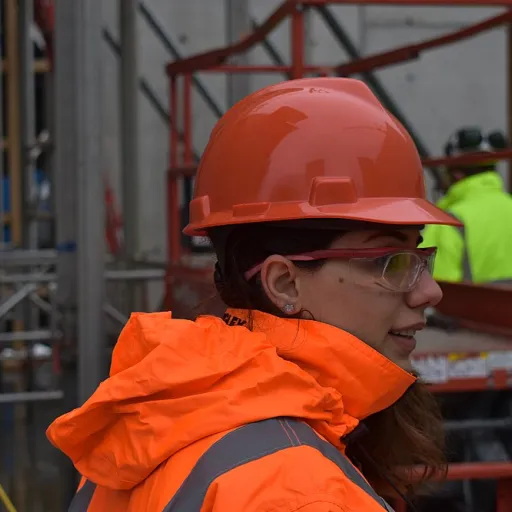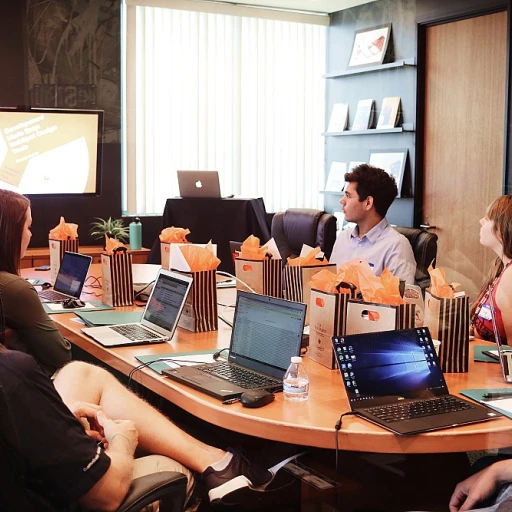
Understanding the value of job notes in recruitment
Why job notes matter in the hiring process
When you start a job search or begin building a hiring process, it’s easy to underestimate the power of well-kept notes. Yet, notes are more than just reminders—they help create context, guide your team, and make every interview or talk more meaningful. Good job notes will save time, help you move forward with clarity, and support better decision-making at every step.
- Clarity and memory: Writing down impressions, questions, and facts during interviews ensures you don’t forget important details by the end of a busy day.
- Consistency: Job notes help you compare candidates fairly, especially when the process stretches over weeks or involves multiple paths and roles.
- Collaboration: When you share notes with your team, everyone stays on the same page. This builds trust and helps avoid repeated questions or confusion.
- Candidate experience: Detailed notes let you personalize your follow-up, which can make candidates feel valued and respected.
In today’s competitive market, hiring is rarely a solo effort. Teams need to build a shared understanding of each candidate’s strengths and fit for the job. Job notes are the foundation for this collaboration. They also help you spot patterns in your hiring process, so you can improve over time and create a better experience for everyone involved.
For more insights on how structured notes can transform your hiring experience, check out this resource on enhancing your hiring experience with Werving & Selectie insights.
How to structure effective job notes
Building a Clear Framework for Job Notes
Effective job notes are more than just quick reminders scribbled during an interview or a meeting. They are a structured record that helps you and your team track the hiring process, understand each candidate’s journey, and make informed decisions. When you start building your notes, it’s important to create a consistent format that everyone on the team can follow. This saves time, reduces confusion, and helps you move forward with confidence.
- Context matters: Always include the date, job title, and stage of the process. This will help you recall the situation when you review your notes days or weeks later.
- Key points over quantity: Focus on the most relevant observations, such as skills, attitude, and cultural fit. Avoid writing everything word-for-word; instead, note what will help you and your team make decisions.
- Action items: Clearly state next steps or follow-up questions. This helps the team stay aligned and ensures nothing falls through the cracks.
- Share notes: Make your notes accessible to the team. Collaborative hiring works best when everyone can see and build on each other’s insights.
Tips for Writing Notes That Help You Move Forward
Writing job notes is a skill that improves with practice. Here are a few tips to help you create notes that add value to your hiring process:
- Use bullet points for clarity and quick scanning.
- Summarize the candidate’s answers and your impressions, rather than transcribing the conversation.
- Highlight any concerns or positive signals that could influence the decision-making process.
- Include your own questions or thoughts about the candidate’s career paths and how they might fit the job.
Remember, well-structured notes are not just for your own reference. They help the entire team stay on the same page, especially when building consensus or talking about candidates after several rounds of interviews. Over time, this habit will help you build a more efficient and transparent hiring process. For more insights on what can impact your hiring journey, check out this article on key factors leading to job satisfaction decline.
Common mistakes when taking job notes
Why job notes sometimes fail to deliver value
Even with the best intentions, job notes can fall short if not handled with care. Many teams start the hiring process with a plan to take notes, but along the way, common mistakes can creep in. These errors not only waste time but also impact the quality of the hiring decision and the candidate’s experience.
- Lack of context: Notes that miss key details or fail to capture the context of the conversation can confuse others who read them later. Without context, it’s hard to understand why a decision was made or what stood out during the interview.
- Inconsistent note-taking: When each team member writes notes in their own style, it becomes difficult to compare candidates or build a clear picture of the process. Consistency helps everyone stay on the same page and move forward together.
- Overly brief or vague notes: Short notes like “good communicator” or “seems nice” don’t help the team. Detailed observations about skills, experience, and fit are more useful when building a case for or against a candidate.
- Not sharing notes promptly: If notes are not shared with the team soon after the interview, important details may be forgotten. Timely sharing helps keep the process moving and supports collaborative decision-making.
- Using notes as a checklist only: Treating notes as a box-ticking exercise can limit deeper insights. Instead, use them to capture unique paths, questions, and moments from each interview.
How to avoid these pitfalls and build better notes
To help your team create more valuable job notes, focus on clarity, context, and collaboration. Encourage everyone involved in the hiring process to write notes that will help others understand the candidate’s journey. When you share notes, make sure they are accessible to the whole team and easy to reference during decision meetings.
Remember, well-structured notes not only help your team but also improve the candidate experience. If you want to see how clear communication can make a difference, check out this guide on writing an effective interview confirmation email template. Clear notes and communication at every stage help candidates feel respected and informed throughout their job search.
Job notes and collaborative hiring
Bringing the Team Together with Job Notes
In today’s hiring process, collaboration is more than a buzzword. When you build a team to search for the right candidate, clear communication is essential. Job notes play a crucial role in making sure everyone is on the same page, especially when multiple people are involved in the interview process. Sharing notes helps avoid confusion, saves time, and ensures that each team member has the right context before they talk to a candidate or make a decision.
- Transparency: When you share notes, you create a record that everyone can access. This helps the team understand why certain paths were chosen or why a candidate moved forward in the process.
- Consistency: Writing job notes after each interview helps keep feedback consistent. This way, the team can build a clear picture of each candidate’s strengths and areas for improvement.
- Better decision-making: With all notes in one place, the team can review feedback together. This collaborative approach reduces bias and helps the team make informed decisions.
- Efficient follow-ups: When you note key points from each conversation, it’s easier to pick up where you left off, even if days have passed since the last interview. This saves time and keeps the process moving forward.
Encouraging your team to write and share notes is not just about documentation—it’s about building a stronger, more effective hiring process. Over time, these habits help create a culture where everyone feels involved and responsible for finding the best fit for the job. Whether you’re just starting to build your hiring team or looking to improve your process, making job notes a daily part of your workflow will help you move forward with confidence.
Using job notes to enhance candidate experience
Creating a Positive Candidate Journey Through Notes
Job notes are more than just reminders for the hiring team—they can be a powerful tool to enhance the candidate experience throughout the recruitment process. When notes are used thoughtfully, they help create a sense of continuity and respect for each candidate’s time and career path.
- Personalization: By referring back to previous notes during interviews, you show candidates that you remember their background, interests, and goals. This attention to detail helps candidates feel valued and understood.
- Consistency: Sharing notes within the team ensures everyone is on the same page. This reduces repetitive questions and allows for a smoother, more coherent interview process, making candidates feel the process is well-organized.
- Transparency: When you document the context of each conversation, it’s easier to provide clear feedback and next steps. Candidates appreciate knowing where they stand and what will happen next, which builds trust.
Building Trust and Reducing Stress
Job searches can be stressful, and candidates often worry about being forgotten or misunderstood. Well-kept notes help hiring teams remember important details, so candidates don’t have to repeat themselves at every stage. This saves time for both sides and helps build a positive relationship from the start.
When teams take the time to write and share notes, they demonstrate respect for the candidate’s journey. This approach can set your organization apart, showing that you care about each individual’s experience, not just filling a job.
Moving Forward with Confidence
Clear, organized job notes help everyone move forward efficiently. Candidates receive timely updates and relevant feedback, while teams can quickly review past interactions and make informed decisions. Over time, this practice supports a reputation for fairness and professionalism, which can attract top talent and strengthen your employer brand.
In short, using notes wisely throughout the hiring process is a simple way to help candidates feel heard, respected, and motivated to join your team.
Leveraging technology for better job notes
Digital Tools That Streamline Note-Taking
Today, technology offers a range of solutions to help recruiters and hiring teams manage job notes efficiently. Instead of relying on scattered paper notes or memory, digital tools centralize information, making it easier to search, share, and build on insights throughout the hiring process. These platforms allow you to create structured notes for each candidate, attach relevant documents, and even set reminders for follow-up actions. This not only saves time but also ensures that important context is never lost between interviews or team discussions.
Collaboration Features for Teams
Modern hiring platforms often include features that support collaborative note-taking. Team members can write, edit, and comment on notes in real time, which helps everyone stay aligned. This is especially useful when multiple people are involved in the interview process. By sharing notes, the team can quickly identify strong candidates, discuss concerns, and move forward with confidence. These tools also help avoid duplicate questions or missed details, making each interview more productive and respectful of the candidate’s time.
Integrating Notes with the Hiring Workflow
Integrating note-taking tools with your existing hiring workflow is key to maximizing their value. Many platforms offer integrations with calendar apps, email, and applicant tracking systems. This means that notes taken during an interview can be instantly linked to a candidate’s profile, making it easy to review their journey at any stage. Over time, this builds a rich database of insights that can help improve your process and inform future hiring decisions. It also makes it easier to provide feedback to candidates, enhancing their experience and supporting their career paths.
Best Practices for Digital Note-Taking
- Start each note with clear context: include the job title, interview stage, and date.
- Use bullet points for key observations to make notes easy to scan.
- Assign action items or next steps to specific team members to keep the process moving forward.
- Regularly review and update notes to ensure they remain relevant and accurate.
By leveraging technology, you can transform job notes from a simple record into a powerful tool for building a stronger team and delivering a better candidate experience. The right tools will help you organize information, foster collaboration, and make smarter hiring decisions every day.













